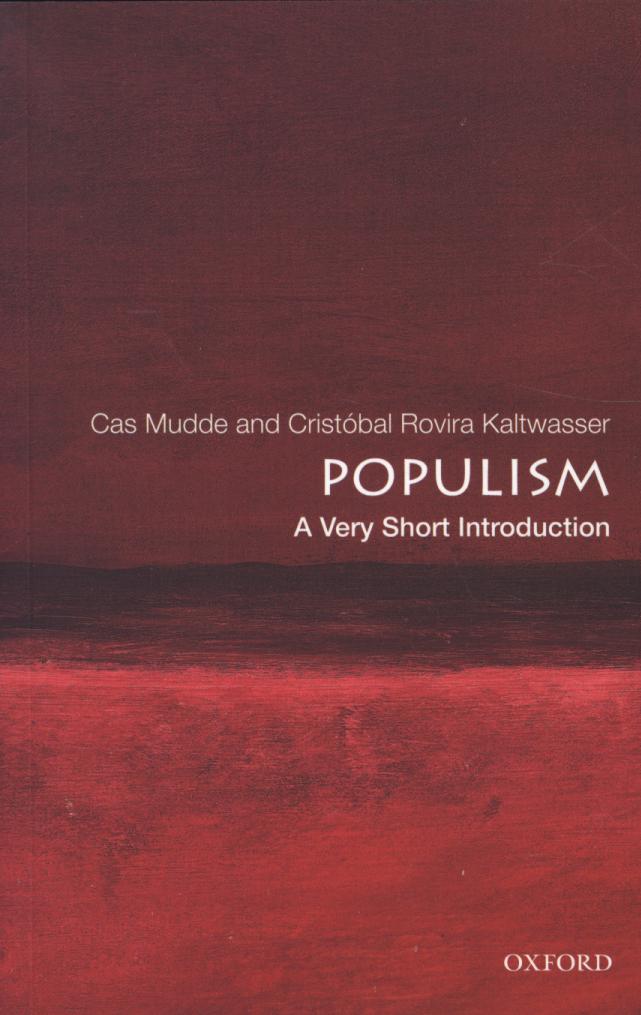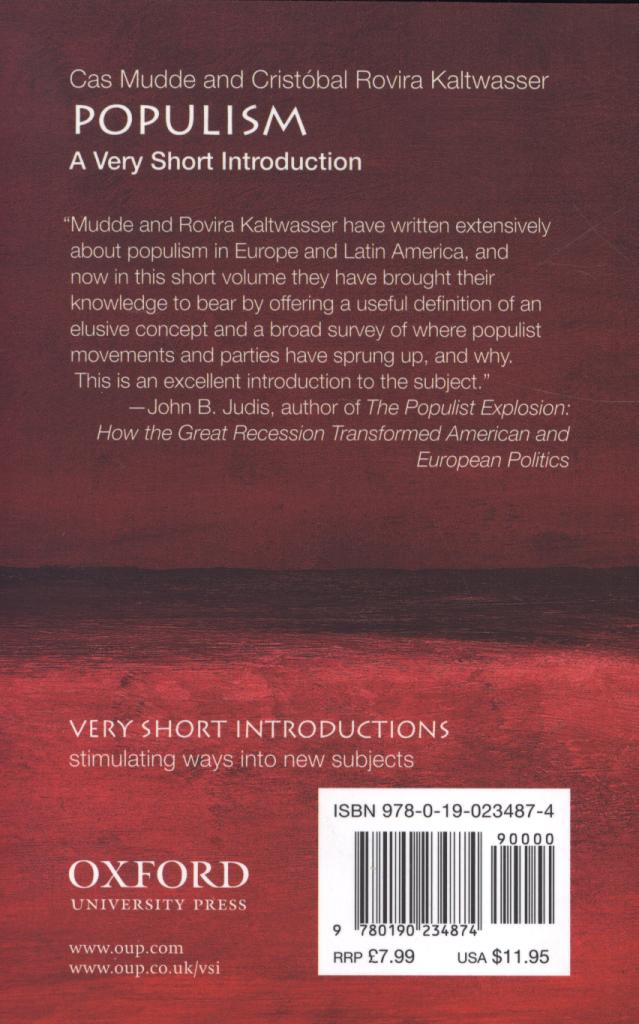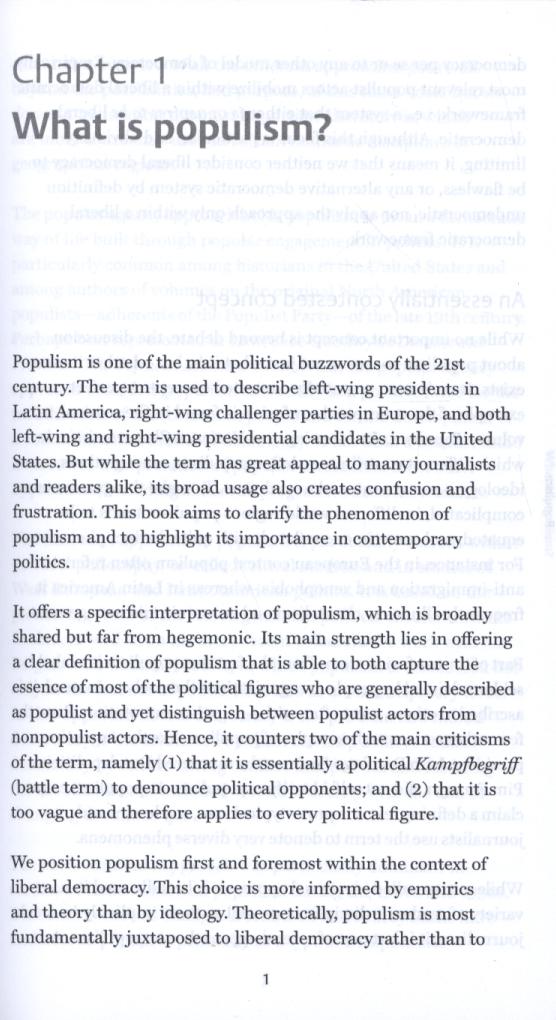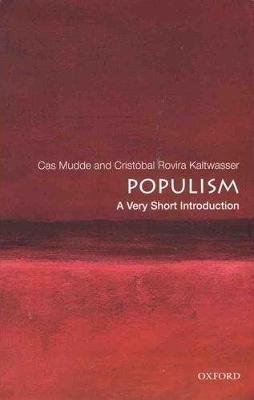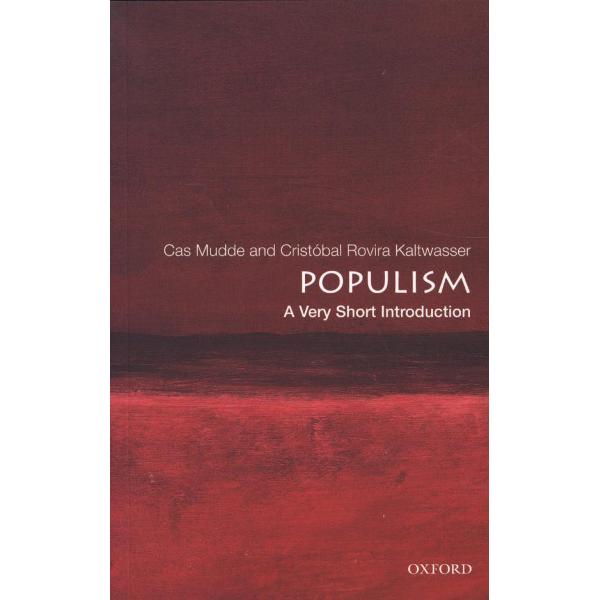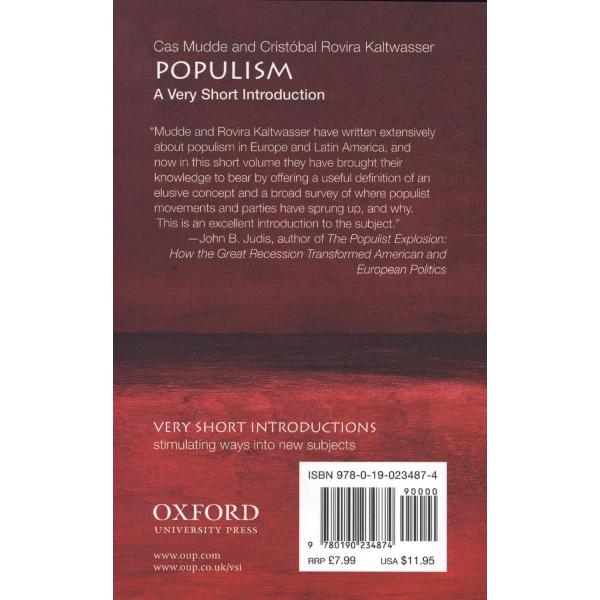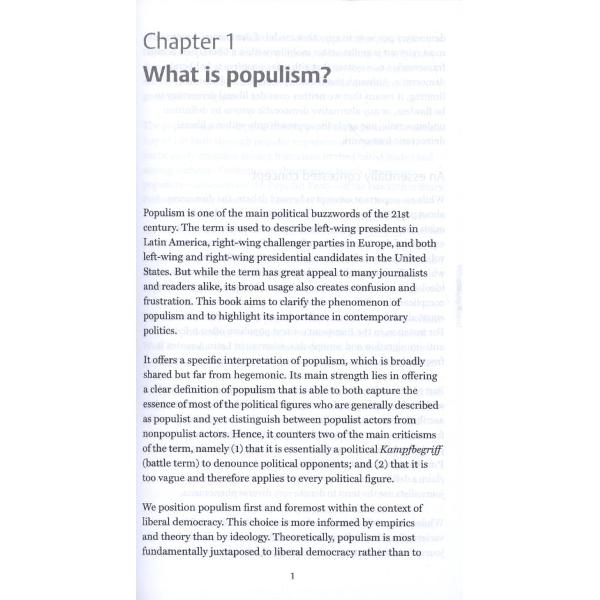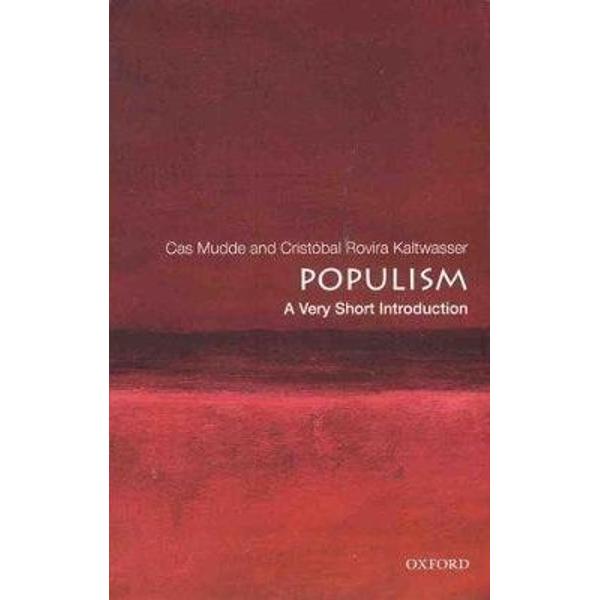Populism: A Very Short Introduction
Populism: A Very Short Introduction
populism in theory and practice.
Cas Mudde and Cristobal Rovera Kaltwasser present populism as an ideology that divides society into two antagonistic camps, the "pure people" versus the "corrupt elite," and that privileges the general will of the people above all else. They illustrate the practical power of this ideology through a survey of representative populist movements of the modern era: European right-wing parties, left-wing presidents in Latin America, and the Tea Party movement in the United States. The authors
delve into the ambivalent personalities of charismatic populist leaders such as Juan Domingo Peron, H. Ross Perot, Jean-Marie le Pen, Silvio Berlusconi, and Hugo Chavez. If the strong male leader embodies the mainstream form of populism, many resolute women, such as Eva Peron, Pauline Hanson, and Sarah
Palin, have also succeeded in building a populist status, often by exploiting gendered notions of society.
Although populism is ultimately part of democracy, populist movements constitute an increasing challenge to democratic politics. Comparing political trends across different countries, this compelling book debates what the long-term consequences of this challenge could be, as it turns the spotlight on the bewildering effect of populism on today's political and social life.
PRP: 80.54 Lei
Acesta este Prețul Recomandat de Producător. Prețul de vânzare al produsului este afișat mai jos.
64.43Lei
64.43Lei
80.54 LeiLivrare in 2-4 saptamani
Descrierea produsului
populism in theory and practice.
Cas Mudde and Cristobal Rovera Kaltwasser present populism as an ideology that divides society into two antagonistic camps, the "pure people" versus the "corrupt elite," and that privileges the general will of the people above all else. They illustrate the practical power of this ideology through a survey of representative populist movements of the modern era: European right-wing parties, left-wing presidents in Latin America, and the Tea Party movement in the United States. The authors
delve into the ambivalent personalities of charismatic populist leaders such as Juan Domingo Peron, H. Ross Perot, Jean-Marie le Pen, Silvio Berlusconi, and Hugo Chavez. If the strong male leader embodies the mainstream form of populism, many resolute women, such as Eva Peron, Pauline Hanson, and Sarah
Palin, have also succeeded in building a populist status, often by exploiting gendered notions of society.
Although populism is ultimately part of democracy, populist movements constitute an increasing challenge to democratic politics. Comparing political trends across different countries, this compelling book debates what the long-term consequences of this challenge could be, as it turns the spotlight on the bewildering effect of populism on today's political and social life.
Detaliile produsului








